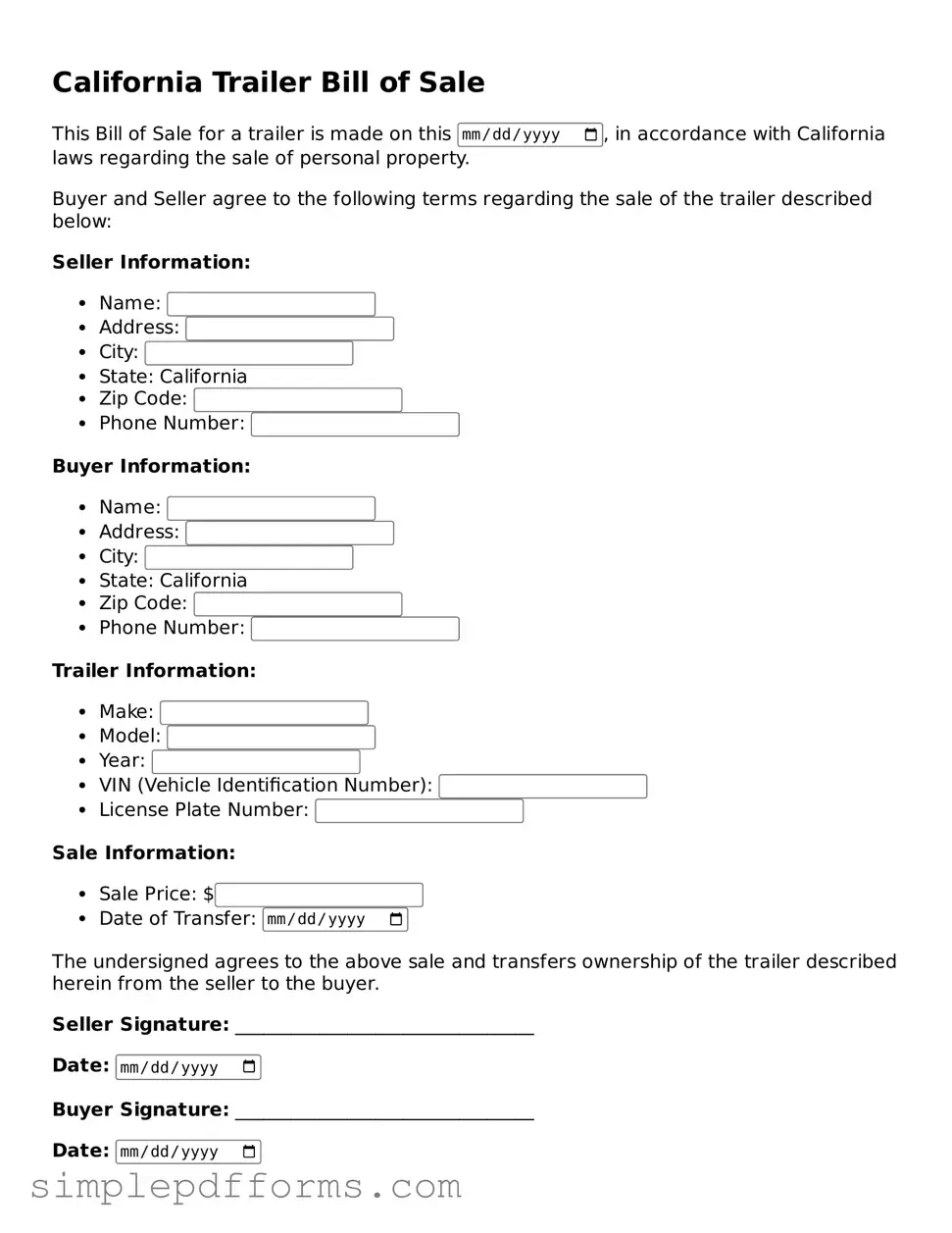Attorney-Verified Trailer Bill of Sale Document for California State
The California Trailer Bill of Sale form is a legal document that facilitates the transfer of ownership for a trailer in the state of California. This form serves as proof of sale and includes essential details such as the buyer's and seller's information, trailer identification, and purchase price. Understanding this document is crucial for ensuring a smooth transaction and protecting the interests of both parties involved.
Open Trailer Bill of Sale Editor Now

Attorney-Verified Trailer Bill of Sale Document for California State
Open Trailer Bill of Sale Editor Now

Open Trailer Bill of Sale Editor Now
or
Get Trailer Bill of Sale PDF Form
Your form is waiting for completion
Complete Trailer Bill of Sale online in minutes with ease.